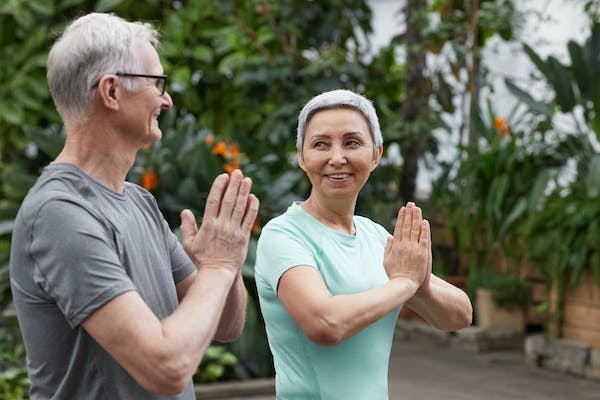How to Support an Older Relative with their Mobility

Collaborative Post
Do you have an older relative who isn’t quite as mobile as they could be? Maybe you feel as though they are losing their muscle strength because they aren’t being active and you want to help them turn this around. Either way, it is more than possible for you to make a change if you follow the steps outlined in this guide.
Encourage Exercise
Seniors need to carry out gentle exercises that work for them. The great thing about exercise is that it helps them to increase their balance and it also eases any symptoms of arthritis they may have. Popular options for exercise include swimming, walking and even ballroom dancing. If you have someone who has severe mobility issues then you will want to consult with a physical therapist, as they can help you to find a suitable exercise. Some seniors may need assistance when working out at home. If this is the case then make sure that you pursue this and that you get them the support they need.
Change the Living Space
It’s so important that your loved one has plenty of moving space within their home. Installing some railings and ramps can make it easier for them to make their way around, but you also need to take into account their eyesight. A lot of seniors bump into things because they have a hard time seeing and if this is the case, it can make it difficult for them to move. If you make the space as clear as possible so you can minimise injuries.
Get them a Good Walking Aid
Walking assistance tools are great for mobility, but if you overuse aids like this then you may find that you end up impairing mobility. If your loved one needs a brace or a cane then using a walker could help them to be more mobile. You might also want to look into getting a rollator walker with seat, as this could give them the independence they need. Limited mobility is just one of the many health issues that affect seniors. This can make it difficult for them to live independently. That being said, if your loved one is struggling then one thing you can do is look into home care, as this can help them to get the support they need around the home.
Enhance Balance
A lot of seniors who have limited mobility, tend to have problems with their balance. Proper balance requires your brain and your body to work with each other. Your loved one can easily enhance their balance by practising. Ask them to stand on one foot, to climb the stairs or to raise and lower one leg. If you can do this then you can help them to work on their coordination and this is great. If you want to help them, then make sure that you have an open conversation about the things that they struggle with, so you can give them the help they are looking for. This will show them that they are being supported.
Encourage them to Eat Well
One of the most overlooked causes of a senior having limited mobility is being overweight. If a senior is overweight then this puts a great deal of pressure on their joints, which can make walking incredibly difficult. Seniors who are overweight may have to talk to a nutritionist, or they may have to communicate with a doctor so that they can find a diet that helps them to slim down. If you try to put a senior on any diet then this may deprive them of the additional vitamins and nutrients they need and this is not a good thing. At home, you can make some changes, such as avoiding processed foods and encouraging them to eat lean meat and whole grains. That being said, you do need to try and make sure that they talk to their doctor before you push them on a diet that may not be good for them. Older adults may need to take joint supplements in combination to having a healthy diet, so make sure that you keep this in mind. Of course, if your loved one needs some support then one thing you can do is try and talk with them to find out what they are struggling with, so you can then make sure that you are catering for them properly. Cook meals that they love where possible, so you can help keep them mentally healthy as well as just physically healthy.
Image Source: Pexels (CC0 License)

